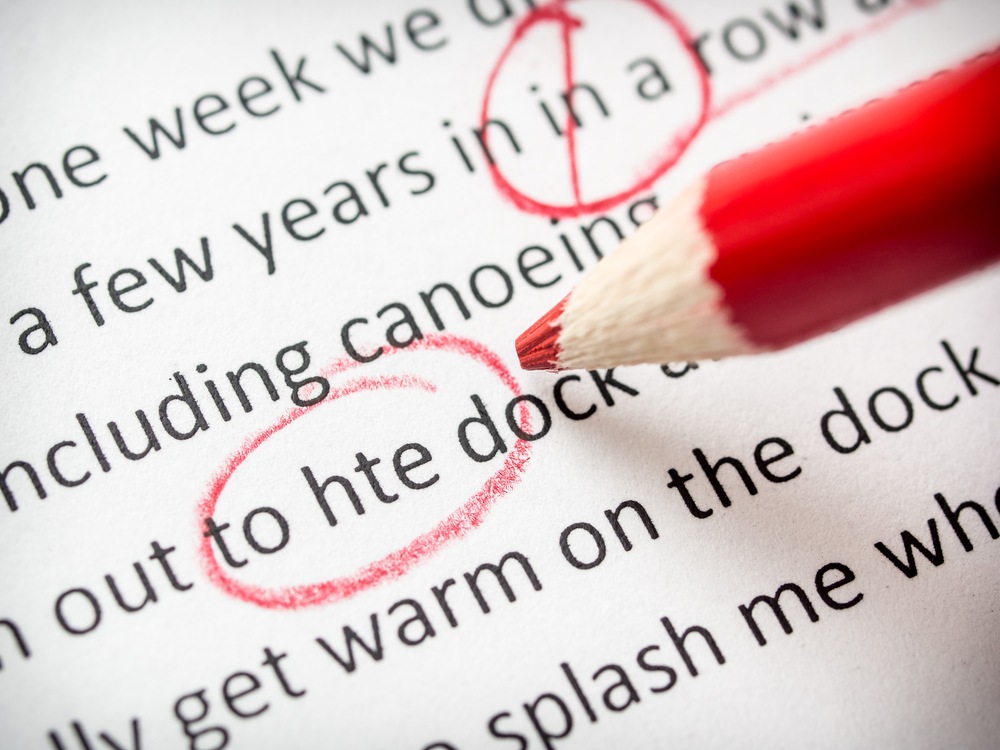First, a disclosure: I’m a grammar nut. I cringe when I walk into the grocery store and see row after row of checkout lines devoted to people who have “10 items or less” to purchase. And I also used to work for a manager who repeatedly asked me to pick up the “most current” contract (which would set me to muttering about how the word “current” shouldn’t be modified by the word “most,” as something is either current or out of date).
I enjoy a good gaffe as much as the next guy. But recently, I’ve been wondering if a relentless focus on pristine grammar and glistening sentences hasn’t been keeping some people out of our online conversations.
For example, when clients come to the company I work for and ask for help with some kind of reputation management problem, they’re encouraged to become content generators. “Tweet, tweet, tweet,” we tell them. “Blog, blog, blog,” we remind them. But at the same time, there’s a parallel conversation afoot that seems to suggest that only the strongest among us should be writing.
And to be honest, that conversation makes me a little uncomfortable.
Cringe-Worthy Content is Common
While almost everyone with an internet connection is facing pressure to get out there and generate some fabulous content, we may be less prepared than we’ve ever been to generate pieces that would pass grammar muster. A fascinating book published in 2003, The War Against Grammar, demonstrated this point quite nicely, as the authors suggest that funding and public support for formal grammar education in school has been on the decline since the 1960s. As a result, few students have the opportunity to really learn the basics while they’re in school, and fewer still feel compelled to study the topic on their own time.
In addition, many informal writers seem all but dependent upon the tools they use in order to get the job done. They run a quick spelling and grammar check in Word, and if no mistakes appear, they consider the text as perfect as it can possibly be. Unfortunately, these tools are often blunt at best, and sometimes, they’re downright awful. My Word program, for example, has tried to force me to change “I am” to “I be” on more than one occasion, and if I followed that advice, I have no idea what the public reaction might be.
Penalties for Poor Grammar: A New Trend?
If few students learn about grammar, and the tools we use in order to catch our mistakes are inferior, it’s no surprise that many blogs are filled with bits of stray verbiage that would make any teacher cringe. But unfortunately, there is a push to perfect grammar in every piece of writing that appears online.
Google isn’t out-and-out penalizing sites that utilize poor grammar. In fact, Matt Cutts has even gone on record to suggest that poor grammar in comments won’t lead to the devaluation of a site. But, Google has also instituted a “search by reading level” function that allows users to weed out articles that don’t meet a certain quality standard. It’s easy to see how this little change might morph into an index that ranks pages by grade level and quality of writing, putting the best stuff first. It’s not happening now, but it might happen in the future, right?
At Bing, however, the future is now. As a piece on the Bing Blog put it, near the end of February, sites with few “errors” just seem as though they’re of a higher quality, and as a result, they should get a bump in page results. It’s unclear what Bing execs consider an error (Spelling? Sentence structure? Punctuation?), but it is clear that Bing is looking for a way to rank pages by grammar. As a result, those who don’t write well might not get much of a boost in searches on Bing, no matter how often they sit down to the keyboard to write.
Words for the Professionals
For those of us who write professionally, this stuff matters, and it should matter. We’re paid to help transmit the thoughts of our clients, and we’re putting the skills we obtained in college to good use. It would be a little heartless for us to pretend that we’ll be effective writers when we can’t string together a few sentences without incorporating many errors.
Plus, professional writing is a bit like working magic. We need to cast a spell in order to lure in readers, and we need to keep their attention with each word we use. If we’re working as shamans, each error that slips past us jars our readers out of our spells and allows them to see the tiny person tapping away at the keyboard. There’s just no place for poor grammar in a piece written by professionals.
Consumers also expect this kind of professionalism when they’re working with a company that has a team of marketing writers or business experts. For example, a study conducted in England in 2013 suggests that close to 60 percent of consumers wouldn’t do business with a company that allowed typographical or grammar-based errors on its website. If money is changing hands, people expect professionalism, and they’ll look over a site with a rule book in hand to gauge how serious that company might be.
Bravery for Everyone Else
I think, however, that there’s room for average people to write average blogs that are filled with the average sort of grammar errors. Just as consumers value companies that seem professional, we also value experiences that seem somehow real, rather than managed.
Consider the viral video of Charles Ramsey that was released in the aftermath of the rescue of Amanda Berry. This man has a very tenuous grasp on excellent grammar, but his emotions are palpable and his story is all the more compelling for it. We want to know what he has to say, what he felt, and what he plans to do in the future. We’re hanging on his every word, no matter what he might choose to say.
It’s quite possible that his words would not have held such power if he had written them down. In fact, it’s very possible that some people wouldn’t have found it acceptable to keep reading when the grammar is ghastly. But, maybe the piece would have been just as effective if it had been written in his words, warts and all.
Blogs that may not pass muster with an English teacher can still be quite effective, if they’re written in a spirit of passion. People can still share a story, outline an experience and teach a lesson in an online forum, even if they shed an error or two. People like this are being true to their real selves, and I think there’s a place for that kind of writing online. I think others feel the same.
In the end, people will both find and read pieces that speak to them, and search engines will not punish content that has value, even if that content has a few rough edges that need polishing. I don’t think grammar fear should keep anyone from writing. Period.
So my advice to clients remains the same: If you have something to share online, you should do so. Try to get the words right and use the grammar tools at your disposal, but don’t let the grammar police keep you from telling your story. Do you agree?
Image Source: Shutterstock





